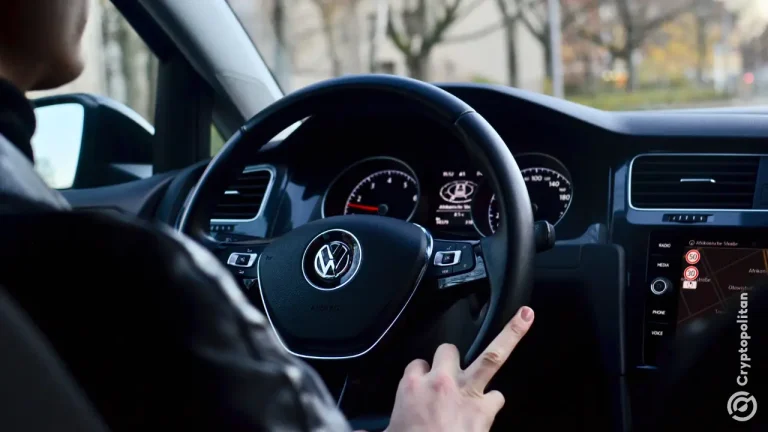Summary
- Volkswagen is significantly investing in Chinese semiconductor and AI technologies to enhance its smart car offerings in the highly competitive Chinese market.
- The company’s joint venture with Horizon Robotics, CARIZON, is developing an in-house chip for smart driving capabilities, aiming for a launch in 3-5 years.
- This new chip is designed to handle complex Chinese road conditions and is comparable to high-end Nvidia chips used in premium electric vehicles.
- Volkswagen has also partnered with XPeng, becoming a strategic partner for its second-generation VLA system and Turing AI chips.
- These collaborations aim to deepen Volkswagen’s R&D capabilities and integrate more closely with the Chinese automotive ecosystem to counter local competitors.
Volkswagen Bolsters Smart Car Capabilities with Chinese Tech Investments
Volkswagen is making substantial commitments to Chinese semiconductor and artificial intelligence technologies to bolster its smart car capabilities. This strategic move is particularly crucial in the Chinese market, where formidable competition from locally supported rivals necessitates advanced technological integration.
The German automaker has recently unveiled two pivotal announcements designed to strengthen its competitive position. These developments underscore Volkswagen’s dedication to navigating the complexities of the world’s largest automotive market.
Development of In-House Smart Driving Chip
On Wednesday, Volkswagen revealed that CARIZON, its joint venture with China’s Horizon Robotics, is in the process of developing its first in-house chip. This chip is intended to power the smart driving capabilities set to be integrated into Volkswagen’s next generation of vehicles for the Chinese market.
The forthcoming chip is engineered for efficient data processing from vehicle cameras and sensors, boasting computational power of approximately 500 to 700 tera operations per second (TOPS). Volkswagen anticipates the product to be available within the next three to five years.
This internal development positions the chip on par with advanced processors from industry leaders like Nvidia, including their renowned Thor chip, which is a popular choice for premium Chinese electric vehicles.
Tailored Solutions for Chinese Road Conditions
The new chip is specifically designed to address the intricate road conditions prevalent in China. Its capabilities will focus on real-time decision-making, high computational efficiency, and adaptability to diverse urban driving scenarios.
Volkswagen claims this initiative will significantly enhance its research and development capabilities. However, the company has not yet detailed whether this chip will be exclusively used in vehicles sold within China or if it will extend to global markets.
This focus on localized technology development aligns with Volkswagen’s broader strategy in China, its most significant market. By improving product competitiveness through technologies developed in or with Chinese companies, Volkswagen aims to narrow the gap with its rapidly advancing local competitors.
If successful, these advancements could help Volkswagen regain market share and foster deeper integration within the Chinese automotive ecosystem.
Strategic Partnership with XPeng
Further solidifying its commitment to Chinese innovation, Volkswagen has also established a strategic partnership with XPeng. The collaboration was officially confirmed at XPeng’s AI Day 2025 event.
Under this agreement, Volkswagen becomes the first strategic partner for XPeng’s second-generation VLA (Vision-Language-Action) system and its advanced Turing AI chips. This partnership deepens XPeng’s expanding ecosystem, which already encompasses autonomous driving, personal air mobility, and humanoid robotics.
This marks the sixth collaboration between Volkswagen and XPeng, building on previous joint efforts in areas such as electrical architecture systems and rapid charging networks. It is anticipated that Volkswagen will integrate XPeng’s self-developed Turing AI chip into its upcoming vehicles destined for the Chinese market.
This partnership elevates XPeng, primarily an electric vehicle manufacturer, into a notable chip innovator. The move could potentially reduce reliance on external chip providers like Nvidia, a strategy that holds significant geopolitical implications.
The VLA model will work in tandem with XPeng’s VLM (Vision-Language Model) system, facilitating ultra-low-latency interactions between the driver, the vehicle, and its autonomous systems. Frank Han, China CEO of Volkswagen’s subsidiary Cariad, indicated that the chip will be manufactured using a 3-4 nanometer processing node, noting the limited foundry options capable of such advanced mass production.
Volkswagen currently plans to deploy this technology within its third-generation China Electrical Architecture (CEA). Projections indicate that by 2030, 80% of Volkswagen Group cars sold in China will be developed using the CEA framework. Han also mentioned that the first CEA-powered model, utilizing Horizon Robotics J-series chips, is slated for release by the end of the current year.
Final Thoughts
Volkswagen’s strategic investments in Chinese semiconductor and AI technologies, through its joint venture with Horizon Robotics and its partnership with XPeng, highlight a determined effort to enhance its smart car offerings in the competitive Chinese market. These collaborations aim to leverage local innovation for advanced driving systems and chip development, positioning the automaker to better compete with domestic rivals.

